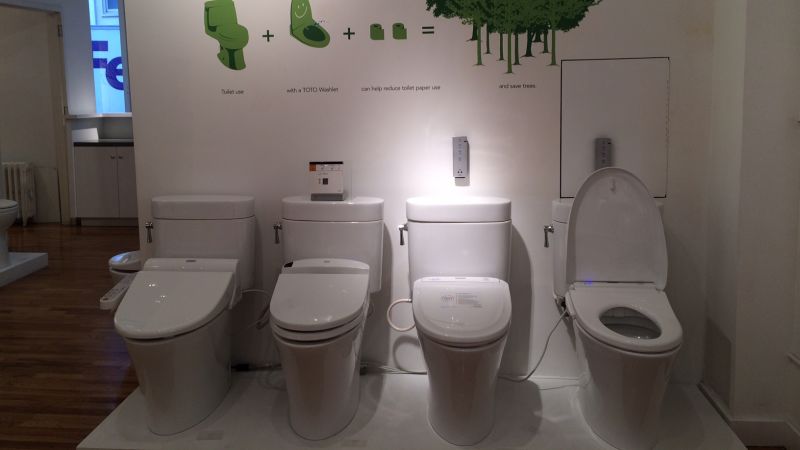The bidet industry in the United States experienced a significant surge in sales during the Covid-19 pandemic, as consumers faced shortages of toilet paper and turned to alternative methods of personal hygiene. Bidets and similar water-based sanitation products are common in many parts of the world, but have been slower to catch on in the US, where toilet paper has long been the standard. However, the pandemic forced many Americans to reconsider their bathroom habits, leading to a spike in bidet sales.
Companies like bidetking.com and Tushy saw a massive increase in revenue during 2020, with sales continuing to grow steadily as more Americans embrace bidet technology. The market for bidets has expanded significantly, with a wide range of products available for consumers to choose from. While some opt for luxury models with advanced features like heating and drying functions, others are content with more basic attachments that simply spray cold water.
Many new bidet users are introduced to the product through word of mouth, as existing customers share their positive experiences with friends and family. Some have even found creative ways to acquire bidets, such as salvaging discarded toilet attachments and adapting them for personal use. The benefits of using flowing water for cleaning, rather than abrasive materials like toilet paper, have been known for centuries and are embraced in many cultures around the world.
The unfamiliarity of bidets in the US can be traced back to historical factors, such as American soldiers’ rejection of bidets after encountering them in European brothels during World War 2. The construction of post-war plumbing systems without bidets further reinforced the association of bidets with foreignness and luxury. However, as more Americans travel to countries where bidet use is widespread, attitudes toward bidets are starting to shift.
The bidet industry faces the challenge of breaking through established habits and brand associations with toilet paper in the US. Marketing experts suggest that bidets may need to become a social norm and be incorporated into new home constructions to fully penetrate the market. As more Americans become aware of the environmental benefits of bidets, such as reducing paper waste, there may be a growing acceptance of bidet technology in the future. Ultimately, the pandemic has forced many Americans to reconsider their bathroom hygiene practices and explore new options such as bidets for a cleaner and more sustainable lifestyle.


